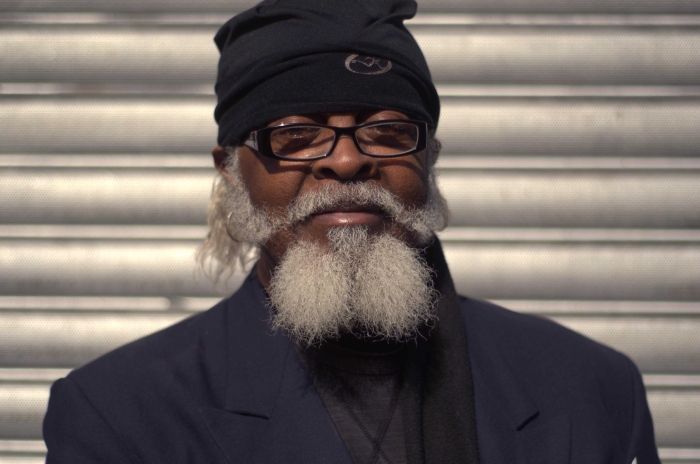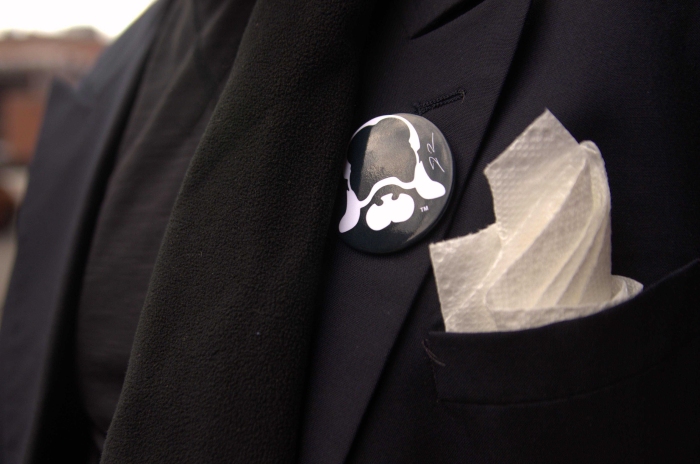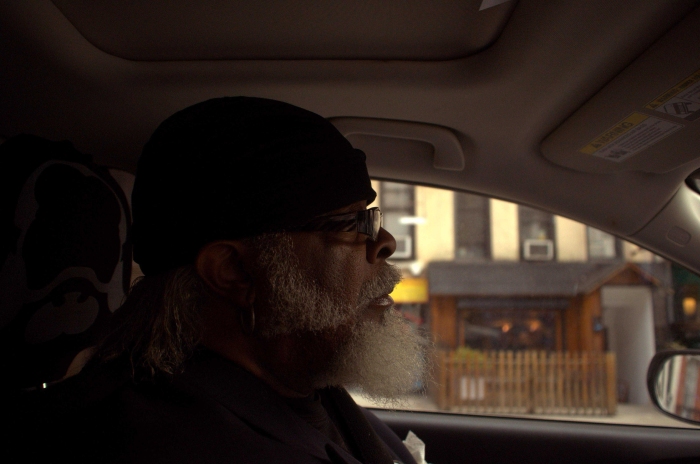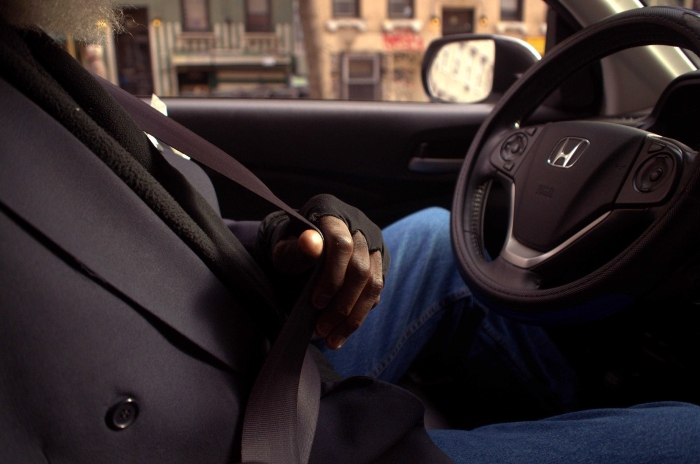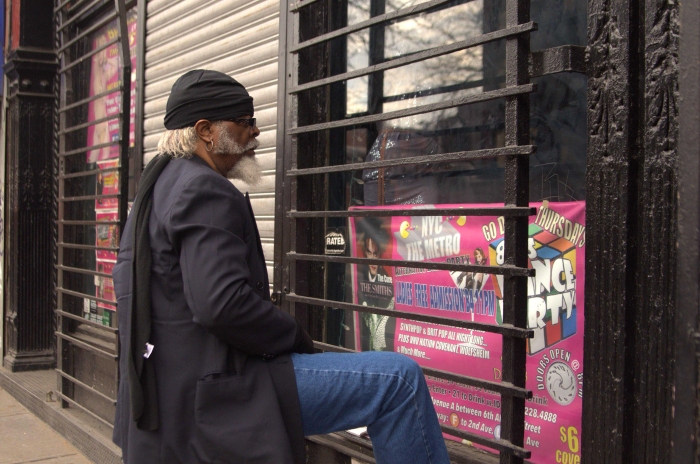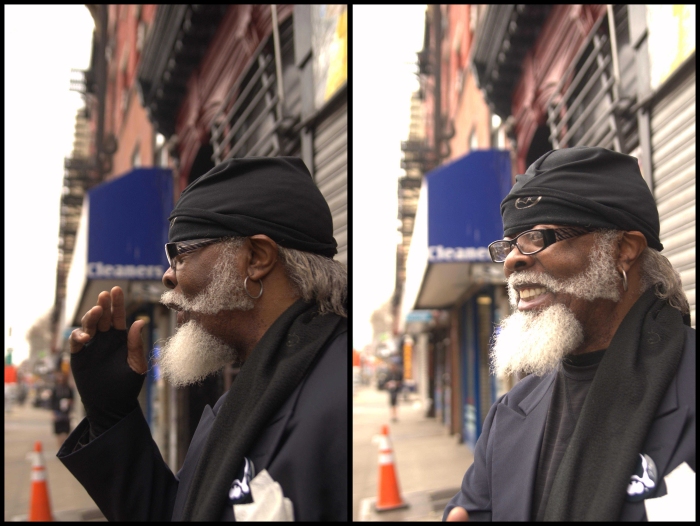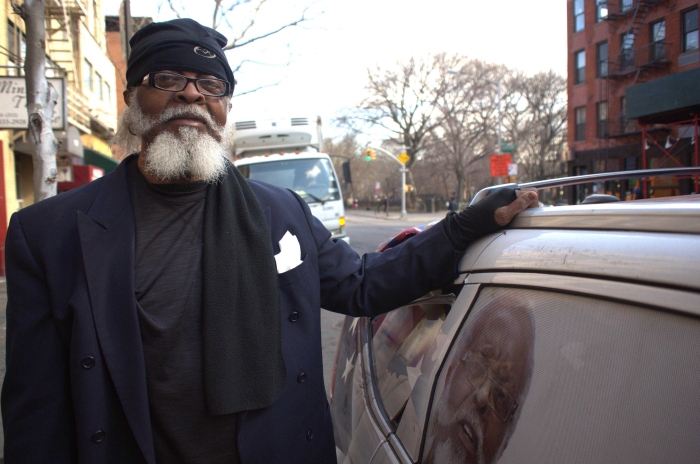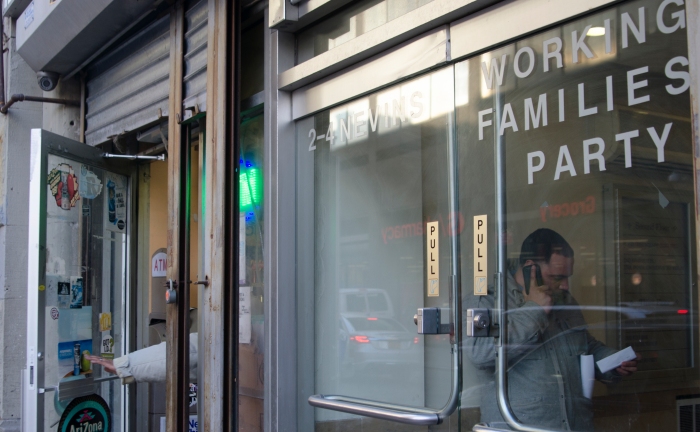The now-famous McMillan is done being funny
by Felipe De La Hoz
Jimmy McMillan moved slowly and observantly as he walked to his customized campaign car, parked on St. Mark’s Place.
Dressed in a suit jacket with a piece of paper towel folded neatly into a pocket square, a skull cap and black gloves, he gave sideways glances at the buildings he passed and shook his head slightly every time he walked by a closed business or a foreclosed apartment.
“All these roads are homes” said the 67-year-old Vietnam vet-turned-politician, founder of the Rent is Too Damn High Party. His furrowed brow betrayed irritation. “Each one of these homes are rent stabilized […] [the landlords] tell the tenants that [they] sold the building […] but when you look at the rent receipt, and check the records, you see the same names on the bill of ownership. They do that so they can raise the rent.”
Mr. McMillan has, so far, run for mayor of New York City and governor of New York under the Rent is Too Damn High Party line, a party that he founded in 2005, and has campaigned to run for president of the United States as a Republican. His most successful political campaign was the 2010 gubernatorial campaign of New York, in which he garnered 40,000 votes as the Rent is Too Damn High candidate.
He spoke enthusiastically about the party’s latest political venture, a slate of 28 party candidates running in the Washington DC primary. “Ten candidates,” he says without hesitation. “I believe ten candidates will win.”
Preliminary election board results show that three of the candidates that appear in the Rent is Too Damn High website as running on that party’s line have won primary elections. These are Eleanor Horton, Muriel Bowser, and Phil Mendelson for Delegate of U.S. House of Representatives, Mayor of the District of Columbia, and Chairman of the Council, respectively. Upon closer inspection, however, it seems that all three candidates ran on the Democratic Party line.
The loquacious McMillan appears assertive, quick-thinking, quick-talking and undaunted by conventional political gamesmanship. In fact, he is convinced that “the whole political system is a failure,” and the leaders are to blame. Elected officials “can’t come in here fix this city and [they] don’t know how to fix it! […] Being mayor and being president and being governor is easy!”
It is clear that he embodies his assertion that “R-E-N-T means life.” Being able to pay rent and “having money in your pocket” are, in his view, the two root problems of all the other issues that the youth face. If someone could address the problem of growing rent, everything else would be resolved, and he has no problem with using inflammatory language and spectacular gestures to get this point accross.
“Every night, young women be walking the street ‘prostituting’ college tuition and rent” he says. “Every night. This government has turned the young men and women into prostitutes! When I look at the President’s daughters, I’m looking at two prostitutes. He don’t realize what he done, and he got two daughters. Cause his daughters ain’t no different than no other daughter out here.”
He seems to be occasionally frustrated the the voters have not put him in office, though he insists that he can only present himself and it’s their responsibility to choose wisely. On one occasion, he declares himself the “antivirus.” On another, he tells me that “there are no housing experts. There’s only one, and you’re sitting with him right now.”
If that is the case, then why hasn’t he been elected? Simple, McMillan thinks: “Look at me. When you came to me this morning did I have a nice suit and a tie? Programmed. Suit and a tie. You’re programed to pay attention to certain people and feel that because they wear that they’re worth listening to.”
McMillan is a little elusive on the specifics of going about lowering the rent and making governance better. He contends, however, that “the President gave $50 billion of the people’s money to every bank and corporation” and this makes the taxpayers 61 percent shareholders of every bank and corporation, which amounts to an owner’s share, giving people the right to demand that their rents and mortgages be lowered.
A young woman stops by McMillan on the street to describe her housing situation. She is going to New York City Housing Court because fumes in her apartment are forcing her to move. McMillan smiled sadly as she explained that her raint had gone from $1500 to $1700 in the six years since she had moved in. “Now see, I know that they broke the law.” He asked the woman, who would not give her name, if she had a lawyer. “The lawyers now seem to be going directly for your wallet.” She had one.
Brooklyn resident Ryan Dacayanan, who sported a ‘Rent is Too Damn High’ shirt, believes that McMillan is well-meaning but generally not taken very seriously. “He’s kind of seen as a comedian. People think he’s kind of crazy.”
He brushes aside the assertion that many people call him crazy. “I’m a Vietnam veteran who jumped out of a helicopter to save a soldier whose legs had been blown off […] and they called me crazy for going and climbing up to the top of the Brooklyn Bridge?”
What’s crazy, he believes, is the damage that elected officials have done, the “mathematical illiteracy” of today’s youth, and the damn rent.
As we discuss his political prospects, he frowns. “Watch how the media is gonna be highlighting me on every television station, all over again.” McMillan reached some celebrity status after footage of his participation in the 2010 gubernatorial debate went viral. “There’s only one problem with the media when they bring me to the stations. They’re used to black guys being comedians” he scoffs, guiding his car, where he says he does most of his campaign business and visits, around crowded downtown streets. “Well, the jokes is going to end.”
